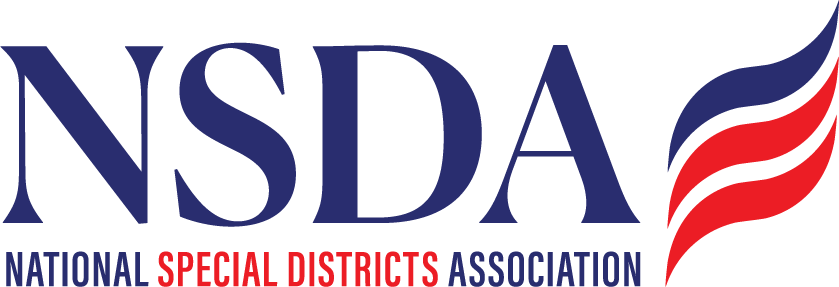HR7525/S4673 Update 10.1.24
We are excited to tell you over 24,816 special districts and partners are supporting our collective efforts and more join daily.
Our goal is to get 25,000 signatures, so don’t slow down, we need 184!
Join the Coalition Supporting HR 7525/S. 4673 and Complete the Form Here
Below is the latest status:
The bipartisan Special District Grant Accessibility Act (SDGAA; H.R. 7525) was introduced by Representatives Pat Fallon (R-TX) and Brittany Pettersen (D-CO) on March 5 and passed by the full House on an overwhelming 352-27 vote. On July 11, Senators Kyrsten Sinema (I-AZ) and John Cornyn (R-TX) introduced an identical companion bill to H.R. 7525 (the Senate bill number is S. 4673). The Senate Homeland Security and Governmental Affairs Committee approved the legislation on a 10-1 vote in late July. The SDGAA (H.R. 7525) is currently awaiting consideration by the full Senate. The sponsors of the bill – Senators Sinema and Cornyn - are working to ensure that the legislation will receive a vote during the upcoming post-election, lame-duck session of Congress.
If you are new to this issue, or need quick speaking points for your outreach, the SDGAA will do the following:
- Establish a first-ever, formal definition of “special district” in federal law; and,
- Require the White House Office of Management and Budget (OMB) to issue guidance to federal agencies requiring special districts to be recognized as local governments for the purpose of federal financial assistance determinations. Federal agencies would have one year to implement OMB’s guidance.
- The primary impetus for H.R. 7525 was the exclusion of special districts in COVID-19 pandemic-era legislation that provided direct federal financial assistance to local governments for coronavirus relief activities (i.e., CARES Act funding and American Rescue Plan Act (ARPA) Fiscal Recovery Fund dollars). Special districts were essentially excluded from these bills despite the fact that districts provided essential public services throughout the COVID-19 pandemic – including ambulance/EMS, hospital, and open space services.
- Special districts are ineligible for – or have barriers to accessing – federal grant programs due to the fact that the U.S. Census Bureau does not recognize special districts as geographic units of government due to the absence of a formal statutory definition. Not having population-based figures precludes special districts from receiving certain formula-driven programs.
- A formal definition of “special district” will foster consistency and enhance special districts’ access to federal programs, including programs that provide resources for constructing and protecting critical infrastructure. Moreover, having a formal definition of special districts codified in law would help facilitate the inclusion of special districts in future legislative efforts, particularly those that are designed to reauthorize or create new grant programs.
Examples of program ineligibility/barriers to access include:
- Transportation Alternatives / Rails-to-Trails. Many local park districts are not able to access the U.S. Department of Transportation’s (USDOT) Transportation Alternatives (TA) program, as special districts are not Metropolitan Planning Organizations (MPOs)/do not meet USDOT’s TA eligibility criteria.
- USDOT’s Reconnecting Communities Program. Special districts are not listed in the program guidance as eligible entities. However, DOT staff has advised that special districts could qualify as a unit of local government or a non-profit organization depending upon how the district is structured.
- U.S. Department of Agriculture (USDA) Rural Housing Preservation Grants. Similar to the aforementioned example, USDA staff has expressed uncertainty regarding special district eligibility for this grant program.
- U.S. Environmental Protection Agency’s (EPA) Clean-Heavy Duty Vehicles Program. Special districts are not explicitly listed as eligible entities in the program guidance and it remains unclear if districts qualify under the program's “municipality” umbrella.
- The Public Service Loan Forgiveness Program through the U.S. Department of Education. Employees of certain special districts have been unable to access program benefits, which are intended for individuals who work for government agencies
Join us in thanking Paragon Government Relations for continuing to work very closely with Senators Sinema, Cornyn, and other supporters in an effort to ensure that the SDGAA is passed by the full Senate and enacted into law.
They keep us updated weekly, so if you have any questions don’t hesitate to contact Chantal Unfug, chantalu@nationalspecialdistricts.org.

.jpg?ixlib=rb-1.1.0&or=0&w=720&h=720&fit=max&auto=format%2Ccompress&s=fcf167e6dbc5377179476f544e29985e)